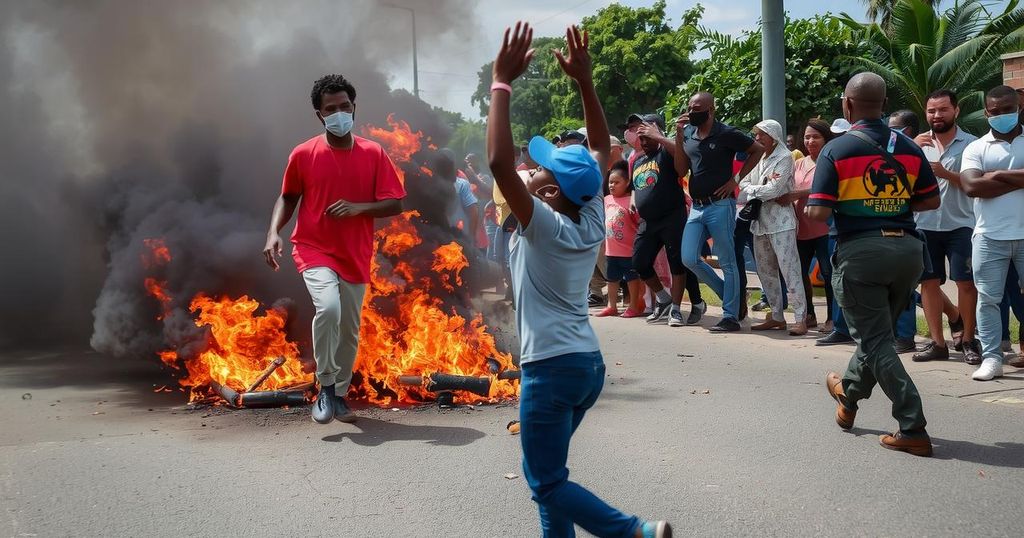Mozambique Violence Erupts Following Election Ruling, Leaving 21 Dead
Following the Supreme Court’s confirmation of Daniel Chapo’s election victory, Mozambique has descended into violence, resulting in at least 21 deaths and numerous injuries. The unrest is largely driven by supporters of the losing candidate, Venancio Mondlane, highlighting the tense political climate surrounding the recent electoral outcomes.
Mozambique is currently experiencing widespread violence following the confirmation of Daniel Chapo as the winner of the contested election held on October 9. The Supreme Court ruling incited protests predominantly among supporters of the losing candidate, Venancio Mondlane, who garnered 24 percent of the vote in contrast to Mr. Chapo’s 65 percent. In the wake of this decision, authorities reported at least 21 fatalities, which included two police officers, as incidents of violence and looting escalated across the nation.
The recent turmoil in Mozambique stems from the announcement made by the country’s highest court affirming the ruling Frelimo party’s presidential candidate Daniel Chapo as the rightful victor of the recent elections. This electoral decision has sparked significant unrest primarily amongst the youth who supported Venancio Mondlane, the runner-up. This background is crucial in understanding the social and political dynamics at play in Mozambique, which has a history of electoral disputes and civil unrest, often linked to governance and party politics.
In conclusion, the ongoing violence in Mozambique reflects deeper issues within its electoral process and political landscape. The confirmation of Daniel Chapo as president amidst disputes has fueled protests and violent confrontations, claiming at least 21 lives. This situation underscores the urgent need for dialogue and resolution strategies to restore peace and stability in Mozambique.
Original Source: www.nytimes.com




Post Comment